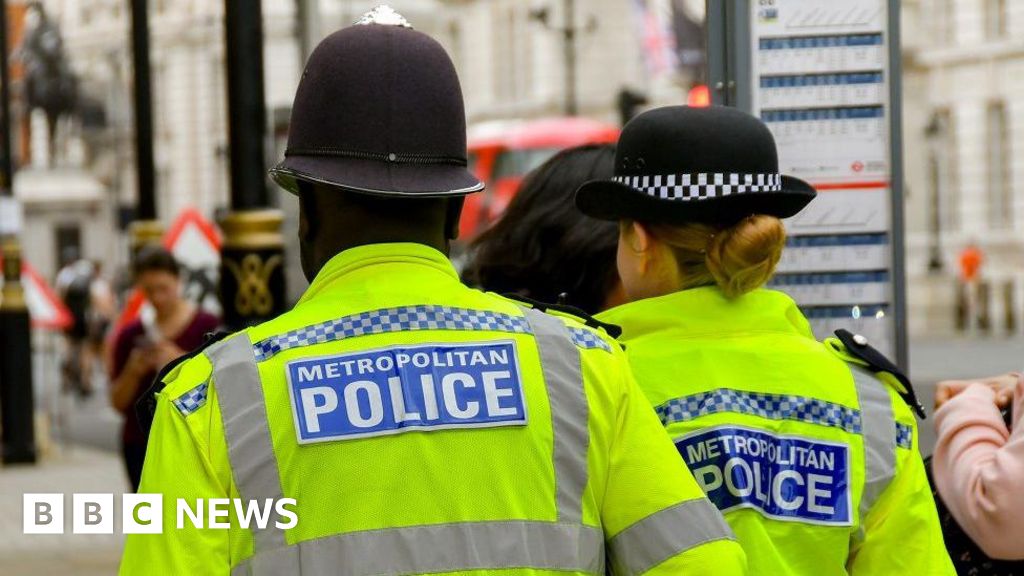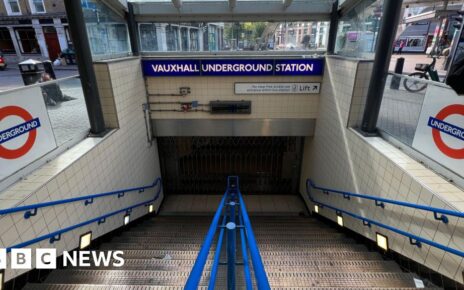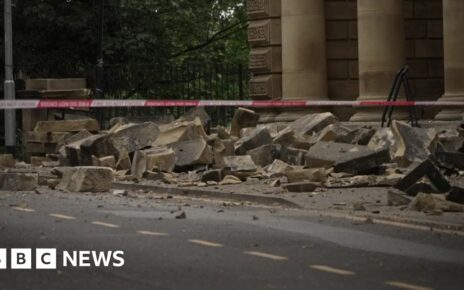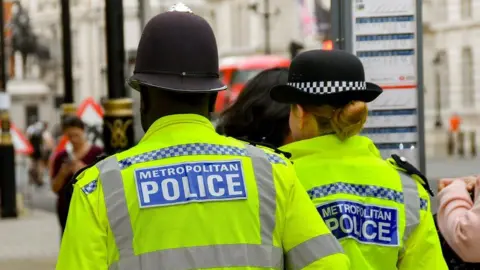 Getty Images
Getty ImagesNon-crime hate incidents should stop being recorded by the police, the policing watchdog has said.
Sir Andy Cooke, His Majesty’s Chief Inspector of Constabulary, said current legislation places police in an “invidious position” with “discretion and common sense” not always prevailing.
“I think we need to separate the offensive from the criminal,” he added.
The head of the Metropolitan Police, speaking to BBC Radio 4’s Today programme, agreed with Sir Andy’s call and highlighted the “limited” levels of discretion available for officers, adding: “We need more flexibility.”
The comments follow recent police activity which has sparked public debate – including a police visit to Daily Telegraph columnist Allison Pearson last year to arrange an interview over a social media post.
The visit attracted a lot of online comment at the time. Essex Police since clarified “at no stage” did its officers tell her the investigation was related to a “non-crime hate incident” while Ms Pearson said she was left “dumbstruck” by the visit.
Non-crime hate incidents are alleged acts perceived to be motivated by hostility or prejudice towards people with certain characteristics, such as race or gender.
They are recorded to collect data on “hate incidents that could escalate into more serious harm” but do not amount to a criminal offence, according to Home Office guidance.
Police guidance on the recording of NCHIs was first published in 2005, following recommendations by an inquiry into the murder of Stephen Lawrence.
Speaking to journalists ahead of the publication on Wednesday of the annual State of Policing in England and Wales assessment, Sir Andy said: “I’m a firm believer that non-crime hate incidents are no longer required, and that intelligence can be gathered in a different way, which would cause less concern to the public and would make recording of such issues much easier for policing.”
He added: “We need, at times, to allow people to speak openly without the fear that their opinion will put them on the wrong side of the law.”
He underlined that the role of the police is to deal with criminality “across the board” which at times means dealing with issues that occur online.
“It can be a fine line, and that’s one of the reasons why we need to look again at the policy and the legislation that sits around this because it places the police in an invidious position and, as we know, discretion and common sense don’t always win out in these issues.”
In April, the Conservatives called for the recording of such incidents to be scrapped in all but a few cases. Kemi Badenoch said they have “wasted police time chasing ideology and grievance instead of justice”.
At the time, the government’s then-Policing Minister Diana Johnson said the plan was “unworkable” and “would prevent the police monitoring serious antisemitism and other racist incidents”.
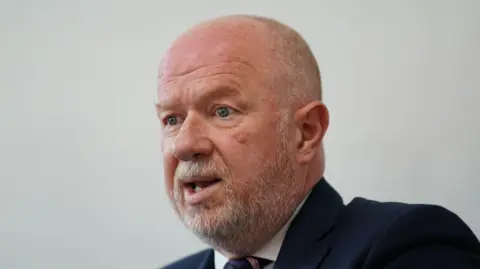 PA Media
PA MediaThe Metropolitan Police chief, Sir Mark Rowley, repeated calls he made last week for the government to “change or clarify” the law after the arrest of Father Ted co-creator Graham Linehan after arriving at Heathrow on a flight from the US.
Linehan was arrested on suspicion of inciting violence in relation to posts on X. It sparked a backlash with public figures and politicians weighing in.
The incident did not relate to the recording of a non-crime hate incident.
Linehan has since said he does not regret any of his posts – adding he would be suing the police “for wrongful arrest and false imprisonment”.
Sir Mark defended the officers involved, although said “perhaps some things could have been done differently”.
He added that he recognised “concern caused by such incidents, given differing perspectives on the balance between free speech and the risks of inciting violence in the real world”.
“The policies that lead officers to make these decisions are wrong.
“We need to pull those policies back to give officers more discretion to make different decisions in these circumstances.”
Asked by media about this arrest, Sir Andy added: “Was it a great public optic? No, it wasn’t. Is there individual criticism from me in relation to the officers who were there? No, there isn’t.
“Lessons I’m sure will be learned in relation to it, but it does make policing’s job harder when these things occur, because this becomes the focus of attention.”
The State of Policing annual report was published on Wednesday with the chief inspector saying this constitutes a “once in a lifetime opportunity” to start the reform that policing needs.
“It will be a missed opportunity if it’s not properly funded from the start,” he added.
Among Sir Andy’s findings were:
- Police forces and the government are “working hard to rebuild public confidence”
- The service continues to face “significant” workforce challenges
- Forces need better co-ordination and collaboration.

